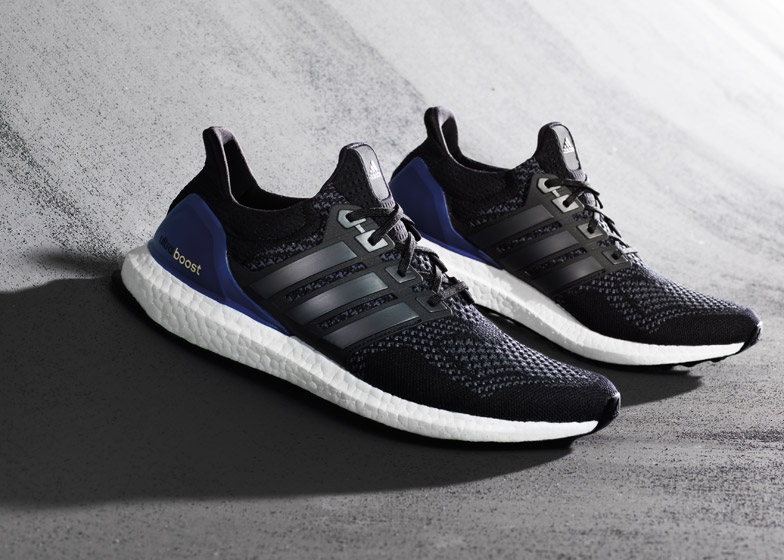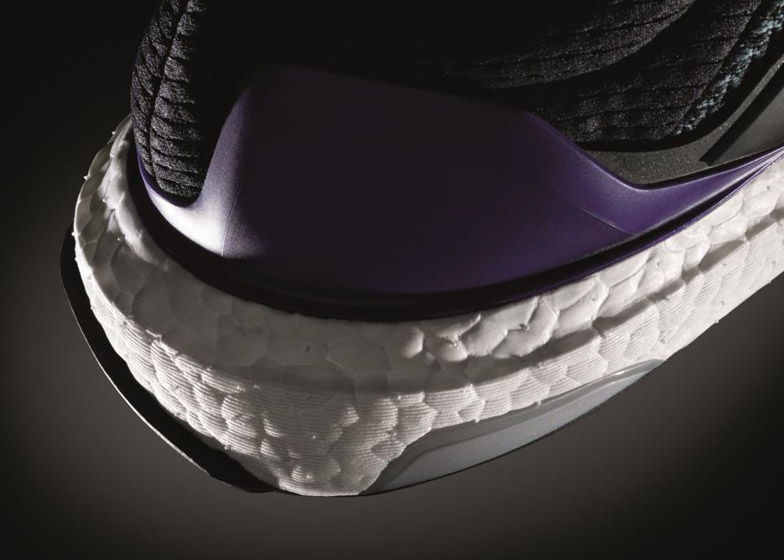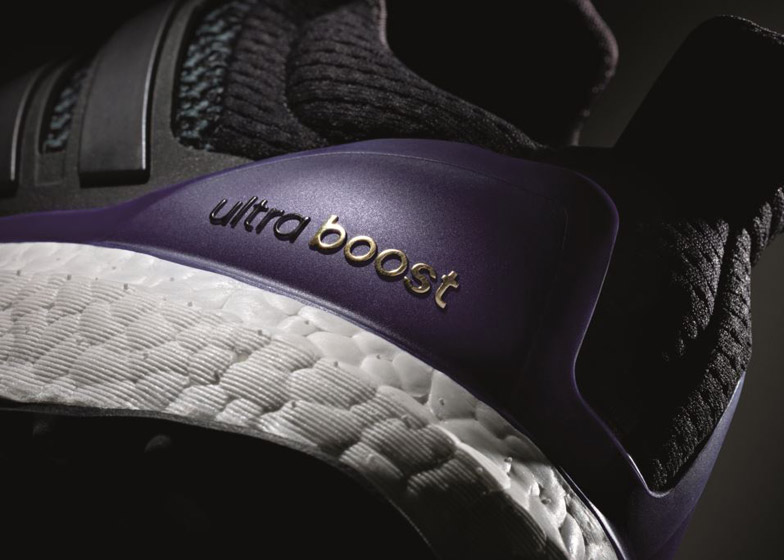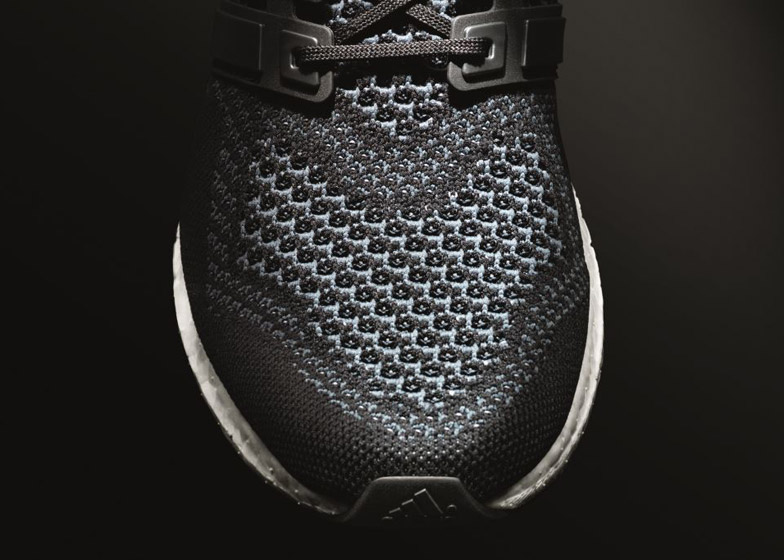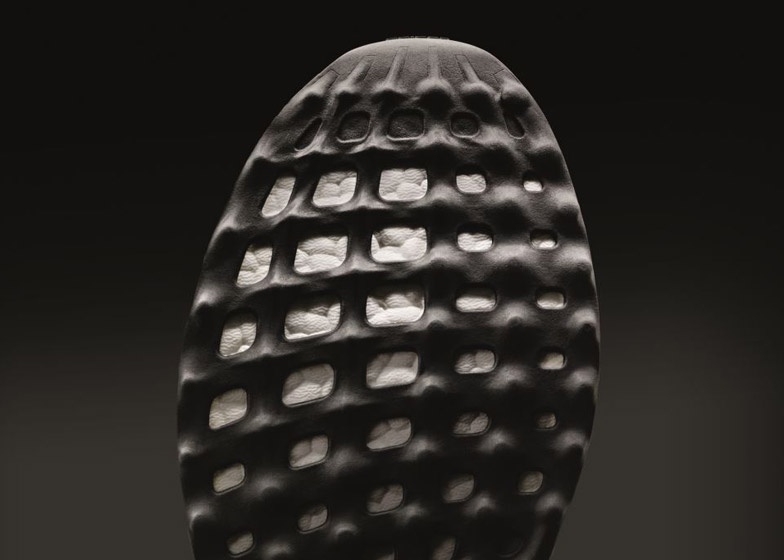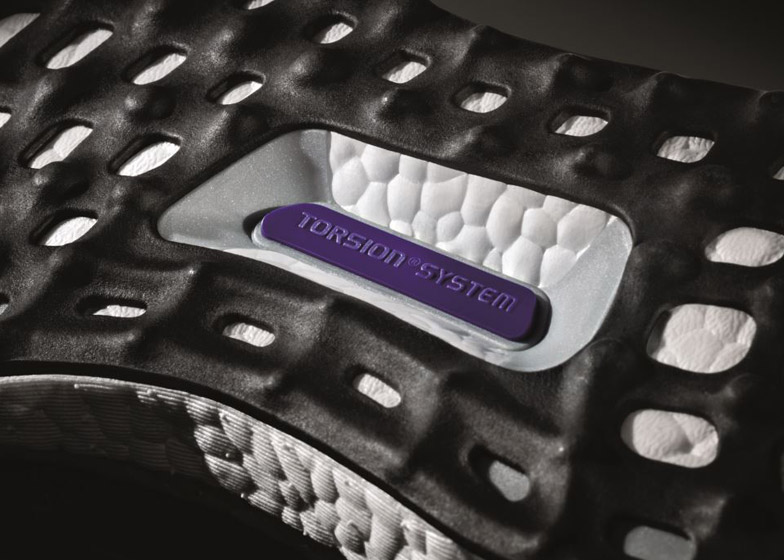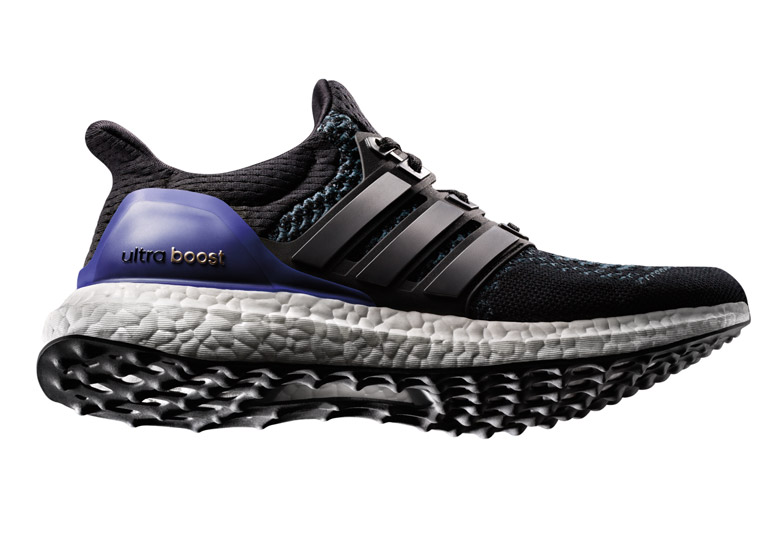News: Adidas has revealed its latest running shoe – combining a flexible knitted upper with a new version of its Boost "energy return" midsole that uses a material usually found in car dashboards (+ slideshow).
The Ultra Boost trainer design combines a number of products developed by Adidas' running and research divisions, to create a shoe that the brand says will "boost" a runner's performance by up to 20 per cent.
"Ultra Boost is a system of the most innovative technologies Adidas has to offer," said a statement from the sports brand.
"Following research using the Aramis System used by NASA, Boeing and BMW, Adidas identified areas of strain and tensions experienced by runners. This led to the development of key technologies including a revolutionary Stretch Web outsole. This new type of sole adapts and moves with the foot."
Aramis is a software and hardware system that has traditionally been used to test the aerodynamics and stress performance of objects and materials at high altitudes and speeds.
The brand's research using the technology found that an athlete's foot can expand by up to 10 millimetres or more while they are running, so Adidas redesigned its PrimeKnit upper to provide an adaptive fit. Across the foot, different densities of weave provide varying levels of support based on the data generated by the research.
A perforated stretchy elastic sole has also been developed using the same data, with grips arranged across the bottom of the foot to correspond with pressure points as the foot moves through a stride.
"The new Primeknit upper construction is elastic, yet snug, and fully adapts to the individual foot as it moves. Ultra Boost moves with, not against, the runner's foot," said a statement from Adidas, who added that the design would "revolutionise running".
First introduced in 2013, Boost is a midsole made from a TPU plastic foam cushioning material more commonly found in car instrument panels, replacing the standard ethylene vinyl acetate midsole used in most running trainers. Each midsole is made up of up to 3000 TPU "energy capsules" – small pellets of the rubbery material that has been injected with air bubbles to make it expand, that are then melded together to form a solid springy surface.
This is intended to help provide a high level of returned energy from the impact of each footfall, adding extra power to a runner's stride.
The new version has had its structure improved, and can resist temperatures of 40 degrees celsius down to minus 20, making it fit for almost all terrains and weather conditions.
The Ultra Boost also includes a bespoke solid TPU heel construction designed to enable the achilles tendon to move more freely and naturally.
"Additional external heel clips guide the foot without affecting the comfort in the vulnerable achilles area," explained Adidas. "Ultra Boost features an eye-catching silhouette and stylish design built to look as good as it performs."
The launch is key to Adidas' strategy this year, as the brand attempts to see off competition from arch-rival Nike.
Last year the two brands battled for supremacy at the FIFA World Cup, where Adidas was the official sponsor.
Despite guerrilla marketing campaigns that included kitting out individual teams and star players with boots and 3D-printed kit bags, Adidas was widely considered the winner after its boots were worn by the tournament's biggest goal scorers.
While Adidas claims market dominance in football, Nike is thought of by many as the leader in the running sector of the sportswear industry, following the launch of its popular FlyKnit technology in 2012.

